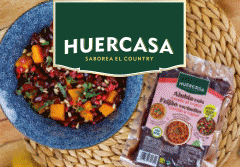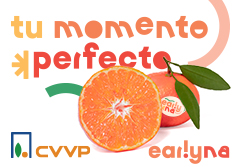The Alcoaxarquía Group’s slogan is ‘We market what we produce.’ They are present in Spain, Morocco, Peru, and in the near future they will announce expansion in another “Caribbean” Latin American country. A new subsidiary that will allow them to offer a continuous supply of avocados 12 months of the year with their own production and agreements with farmers.
Sustainable by conviction (70% of their volumes are bio; the rest are undergoing a conversion process, although they apply the same ecological production techniques; and they have just obtained the Naturland certificate in the fields and processing plants), they are convinced and aware that this is the route to follow to guarantee the future of agriculture. For this reason, they ensure and protect all the processes in order to defend this philosophy. “We must be present in the production. We are extending our subsidiaries to ensure sustainability and try to reach the balance necessary to achieve the quality that we want, guaranteeing the volumes and trying to obtain a suitable price,” Juan Becerra, General Manager of the group, explains.
Expansion on several levels
The group will be present at Fruit Logistica (Hall 25, B-02), with important new developments, the result of the expansion strategy that they have been carrying out on all levels. “In 2024, we will start to produce and market our guacamole line.” In this way, they are adding ready-cooked avocados to their fresh produce, diversifying their offer.
With regard to the fresh tropical fruit campaign, in 2024 the aim is to get close to 20,000 tonnes of avocados and mangos, as a group. “We have the course set towards a goal: reaching 30,000 t in 2026/27”.
In order to achieve this, they have been extending centres and production capacity. Just a year ago, they started up Alcoaxarquía Levante in Sollana, a project that brings them closer to their current clients and prospects in Valencia and the rest of Spain. “It allows us to cover areas more efficiently and sustainably. It helps us to meet all the challenges that define our philosophy.”
To start up the centre in Sollana, they made an investment of 2 million euros. This centre will bring them a handling capacity of 1,000 t/month (12 mill. t/year). But it won’t stop there. “We are continuing to close agreements with large-scale local producers.” In 2024, they expect to have 400 has in production in the Valencian Community.
In this area they have a clear intention to opt for the Lamb Hass variety, which is the main one grown in the region. “We want to defend it as a proximity product for the Autonomous Region and for Spanish national trade.” Agronomically speaking, it allows them to have production on dates when owing to the agro-climatic restrictions, the Hass would not be feasible.
Alcoaxarquía Maroc
Last year, they also added the subsidiary Alcoaxarquía Maroc. An “appendix” which, due to its proximity, “we value as the 9th Andalusian province. From Vélez-Málaga we take the same amount of time to reach Larache (Morocco) as we do to reach the crops in Gibraleón (Huelva)”.
The balance for this first year is “very good. We have consolidated our activity with our own plant, reached agreements with local producers, and we are going to get very close to 4,000 t exported from Morocco, from December to March.”
Regarding the boost to the avocado production from Morocco, Becerra points out that it is limited. “The Moroccan Royal Family has laid down the limits for the surface area to be used for avocado transformation. This growth has a limit to it, but Spain keeps growing in surface area in zones such as Huelva, Cadiz and they are exploring new regions in northern Spain, such as Asturias.”
“Morocco is just another little piece. The entire Mediterranean is exploring the options for these plantations, but the truth is that Spain and Morocco only make up 3% of the world production,” he recalls.
The Alcoaxarquía Group puts the emphasis on quality, rather than on the source. “We want to reach the supermarket shelves with a recognised quality that will have more value than the price in itself. We must be more concerned as to whether the avocado quality is excellent, regardless of the source. We want to learn and to continue improving growing techniques and we are strengthening digitalisation and innovating to have more information with which to be able to compare data and to improve.”
Campaign
The totals have been confirmed in Spain as a whole. “There has been a considerable reduction in quality and quantity of mangos.” In Andalusia, the avocado campaign has started off with a lower decrease (-30%), due to the fact that many farms are coming into production. But “regarding prices, there are many ups and downs; the market is very unsettled. This year there is an important difference in price between the large fruit and the small ones compared to other seasons.” The bio prices range from 1.80€/kg for small fruit to 3.15-3.20€/Kg for larger ones and in conventional crops, they go from 1.50 to2.90€/Kg.
Logistical complications
The crisis in the Red Sea is not yet affecting them, but the one in the Panama Canal is forcing container traffic to be diverted. “There are delays, ships that try to pass on the loss in their competitiveness and stocks are becoming complicated. We hope that it becomes resolved with the Peru campaign, but it doesn’t look likely.” In the worst-case scenario, “the ships will have to go round Cape Horn with the subsequent increase in transport costs. This could double the cost of a container and the transport times would be extended.”




















